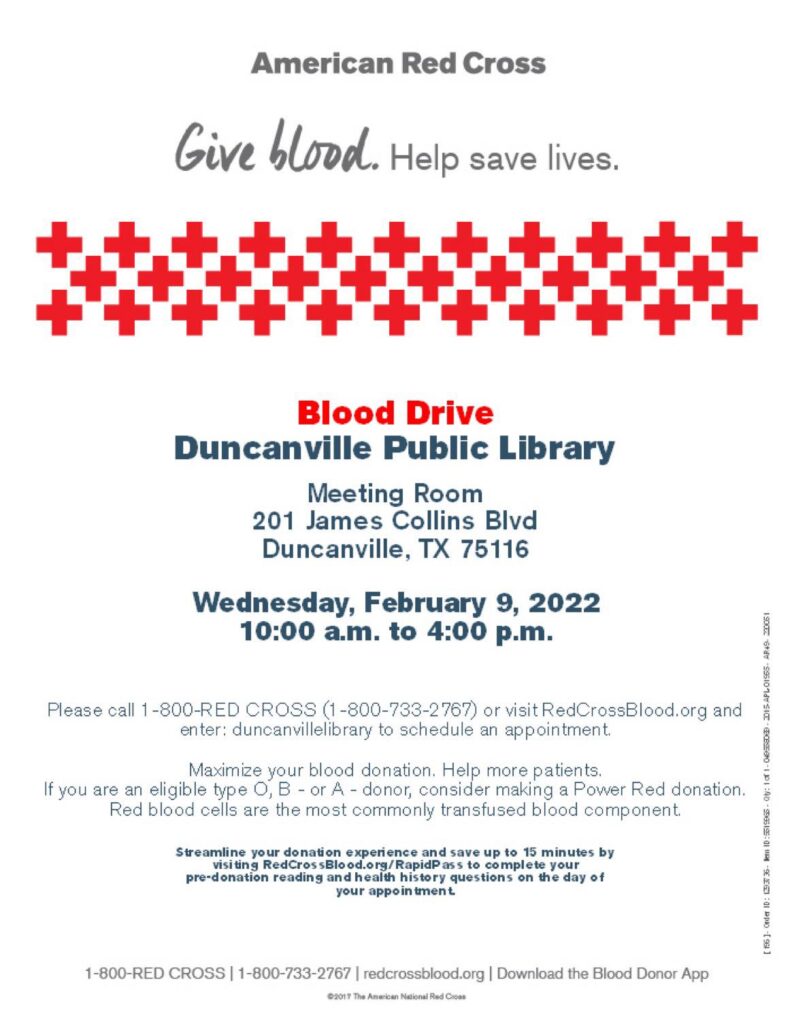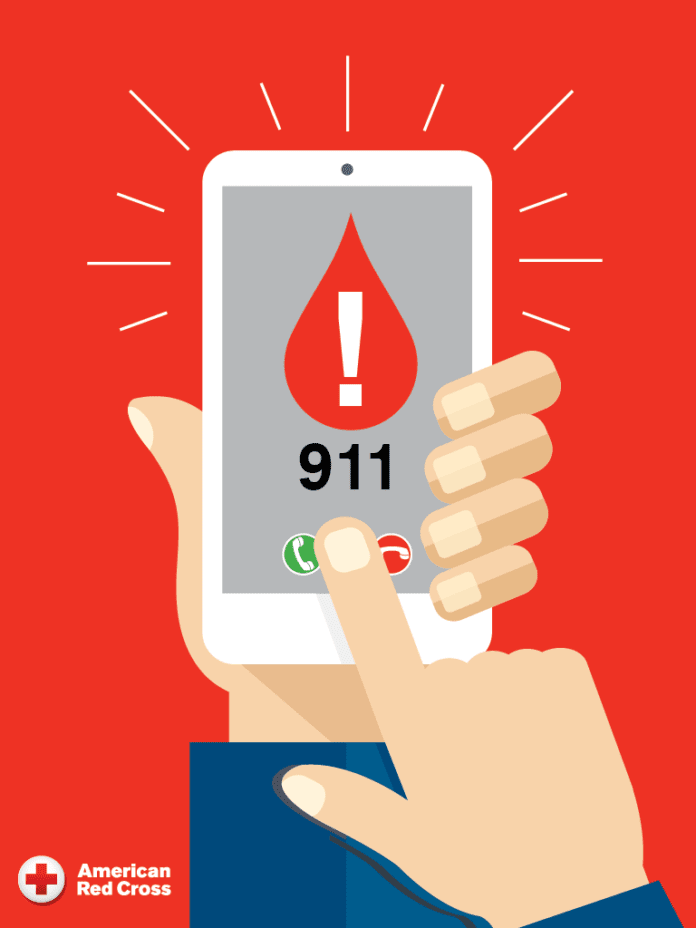Make Plans To Donate Blood
DESOTO – There is a blood crisis in the United States.
Linda Goelzer, APR, Director of Public Relations, Carter BloodCare started out the conversation with that one certainty.
“The U.S. blood supply is in critical condition,” she said. “As our nation continues to struggle through the ongoing blood supply shortage, our local blood supply is not keeping up with patients’ needs, placing our community in a full-on blood supply emergency.”
In fact, Goelzer said currently there is less than one day’s supply of blood locally available, putting area patients at risk and straining an already limited community reserve.
“Blood industry experts say the situation has never been as dire as it is right now,”
Dan Halyburton, Public Affairs Spokesperson, American Red Cross, North Texas Region, APAT Public Affairs said seasonal blood shortages are not uncommon in the United States. However, what makes this situation unique are the many compounding factors such as COVID-19, severe winter weather, supply chain and staffing challenges, and holidays.
Lowest National Blood Inventories In Over a Decade
“These challenges have resulted in the lowest national blood inventories in more than a decade,” Halyburton said. “At times, as much as one-quarter of hospital blood needs are not being met. What is even more challenging at this time is that the blood supply levels have remained at historically low levels for now nearly four months.”
In September 2021, the Red Cross declared a blood shortage. Typically, following a public appeal, they usually experience an increase in blood donations that helps build back the supply week by week until they are able to once again maintain a sufficient blood inventory for their hospital partners.
“Unfortunately, amid the delta and now omicron variants, as well as other compounding pandemic factors, that has not occurred,” Halyburton explained. “While both hospitals and blood centers have developed strategies with manage through shorter periods of limited blood supplies, a prolonged and sustained blood shortage has had a much deeper impact on patient care. Now facing about four months of a historically low blood supply and surging omicron cases, the Red Cross has declared its first-ever national blood crisis.”
The American Red Cross is adamant that people know they are working around the clock to meet the blood needs of hospitals and patients, but can’t do it alone.
Every 2 Seconds Someone Needs Blood
“With less than a one-day supply of critical blood types in recent weeks, another surge of COVID-19 cases and the impacts of winter weather, it’s vital that donors come forward in the days and weeks ahead to help prevent further delays in vital medical care,” Halyburton said adding “We want to assure the public that COVID-19 safety protocols are in place at all blood drives and donation centers, including mask wearing and social distancing. Even as the pandemic continues, the need for blood remains. In fact, every two seconds someone in the U.S. needs blood and that blood can only come from the generosity of volunteer blood donors.”
Goelzer reminded that January is National Blood Donor Month and is an excellent way to give back for those who can give blood.
“We need donors more than ever and if you need to check eligibility requirements you may visit our website and search eligibility,” she said. “Blood is essential and can’t be manufactured in a lab. When there is a shortage, eligible blood donors have the power to fix this. Personal generosity is the only way to replenish and sustain a safe and sufficient blood supply. The blood must be on the shelf in an emergency. Today, the blood supply is not adequate for a large-scale emergency situation.”

In addition to the American Red Cross protocols in place due to COVID-19, Carter BloodCare has proper protocols at all times. Staff are wearing masks and asking donors to wear masks – whether vaccinated or not.
Individuals diagnosed with COVID-19 or who are suspected of having COVID-19, and who had symptomatic disease, should refrain from donating blood for at least 10 days after complete resolution of symptoms. Individuals who have had a positive diagnostic test for SARS-CoV-2 (e.g., nasopharyngeal swab), but never developed symptoms, refrain from donating at least 10 days after the date of the positive test result.
“At all hours of every day, people in our community urgently need blood, including accident and severe trauma patients, people receiving cancer treatments, mothers experiencing difficult childbirths, organ transplant and surgical patients, older adults with age-related health issues, children with anemia, and many others,” Goelzer said. “Together, we must ensure local patients get the blood they need, when they need it. Lives depend on us.”
Halyburton says,“We recognize that donors may be hesitant to come to a blood drive to donate due to disk of exposure, but the bigger challenge is the loss of locations where Red Cross blood drives are conducted. We depend on schools, churches and public facilities to host our drives and many have chosen not to have guests in their facilities.”
For more details and to get information about donating or holding a blood drive go to redcrossblood.org or CarterBloodCare.org where donors are needed immediately of all blood types or you can text or call 1-800-366-2834 if you need help with an appointment.
To host a blood drive, send an email to BookABloodDrive@carterbloodcare.org for more details.













